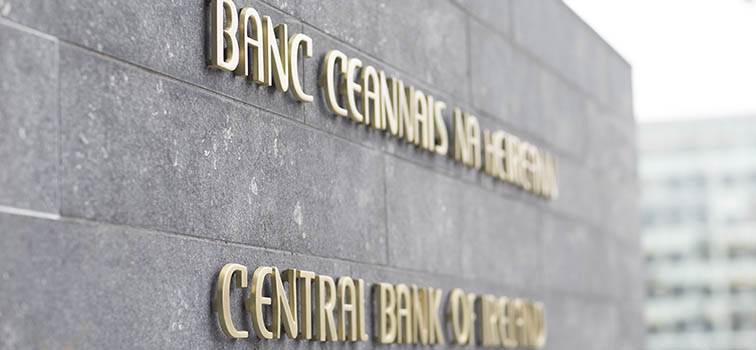“Central Bank actions will contribute to easing the economic impact of the pandemic” - Governor Gabriel Makhlouf
07 April 2020
Press Release

- Monetary policy can help to guard against the coronavirus pandemic morphing into another sovereign debt crisis by safeguarding conditions in financial markets.
- The Central Bank is playing an important role in developing and implementing monetary policy as a member of the Eurosystem, via the Governor’s membership of the Governing Council.
- Release of the Counter Cyclical Buffer (CCyB) in Ireland aims to ensure retail bank responses to the pandemic do not amplify difficulties facing households and businesses related to Covid-19.
The Central Bank of Ireland has today published an Economic Letter written by Sarah Holton, Gillian Phelan and Rebecca Stuart, entitled “Covid-19: monetary policy and the Irish economy” and a Financial Stability Note written by Giorgia De Nora, Eoin O’Brien and Martin O’Brien, entitled “Releasing the CCyB to support the economy in a time of stress”.
In the Economic Letter the authors note that the Central Bank plays a role in developing and implementing monetary policy as a member of the Eurosystem, via the Governor’s membership of the Governing Council. They describe the liquidity policies and the asset purchases undertaken by the ECB to combat the crisis. The authors report that additional asset purchases by the ECB for the remainder of 2020 will amount to around 7.3% of euro area GDP. Together, the monthly purchases will amount to just over €1 trillion in asset purchases between now and the end of the year. Monetary policy can help to guard against the coronavirus pandemic morphing into another sovereign debt crisis by safeguarding conditions in financial markets.
Reporting the liquidity policy effects on Ireland, the authors note that the main Irish retail banks could potentially borrow just in excess of €20 billion in the liquidity (TLTRO) operations. The expansions in liquidity measures and asset purchases ensure that credit continues to flow to households and businesses during this difficult time and that the financial system does not amplify the shock to the economy.
In the Financial Stability Note, the authors write that the Covid-19 outbreak presents an exceptional shock, triggering the materialisation of potential challenges for financial stability. Banks can be affected by the shock through a number of channels, losses would deplete the capital resources of the banking system, potentially restricting its appetite, willingness, and ability to supply credit to the real economy. This in turn would amplify the negative shock to the economy, putting even more households and businesses at risk of distress.
In its role as the Irish macroprudential authority, the Central Bank has responded to these risks by releasing the Countercyclical Capital Buffer (CCyB) from one to zero per cent. The CCyB release on its own enables the release of €940 million across the domestic banking sector. The authors note that releasing the CCyB provides greater scope for the banking system to both absorb COVID-19 related losses and support the real economy during this challenging time. If used entirely to fund new lending, the capacity for new lending could range from between €10 billion and €16 billion based on plausible estimates for risk-weight densities. The release complements the primary fiscal policy response, as well as the actions taken in monetary and supervisory policy.
Speaking on the publication of the papers, Governor Gabriel Makhlouf said “This is a very uncertain time for everyone and in the Central Bank we are keenly aware of the worry and concern being felt in households and businesses across the country. The impact of Covid-19 on the Irish economy has been swift and severe. It is difficult to assess how severe the final impact will be and when the recovery will begin.
“The Central Bank, working with our colleagues across Europe and Ireland, is playing its part to reduce the economic impact to businesses and households. In addition to the monetary policy decisions taken by the ECB Governing Council, our immediate response has included measures that minimise the impact of the crisis including the release of capital buffers to support the ongoing provision of credit to the economy and practical measures to help households with mortgage repayments.
“We will spare no effort to contain the economic effects of the crisis and do everything in our power to protect consumers, households and businesses. The economic challenge facing the country is enormous, but the policy response at EU and domestic level has been rapid and significant”.